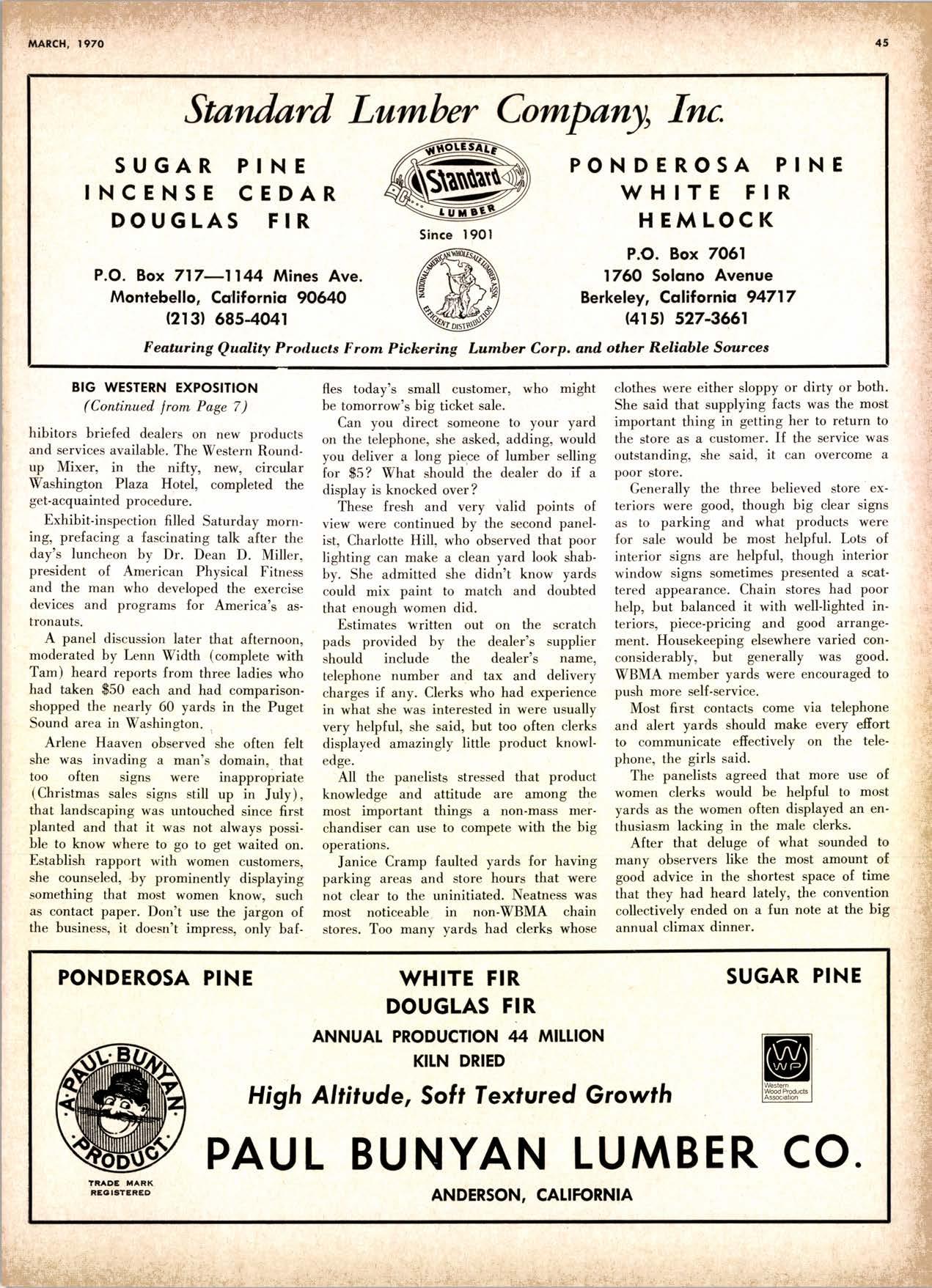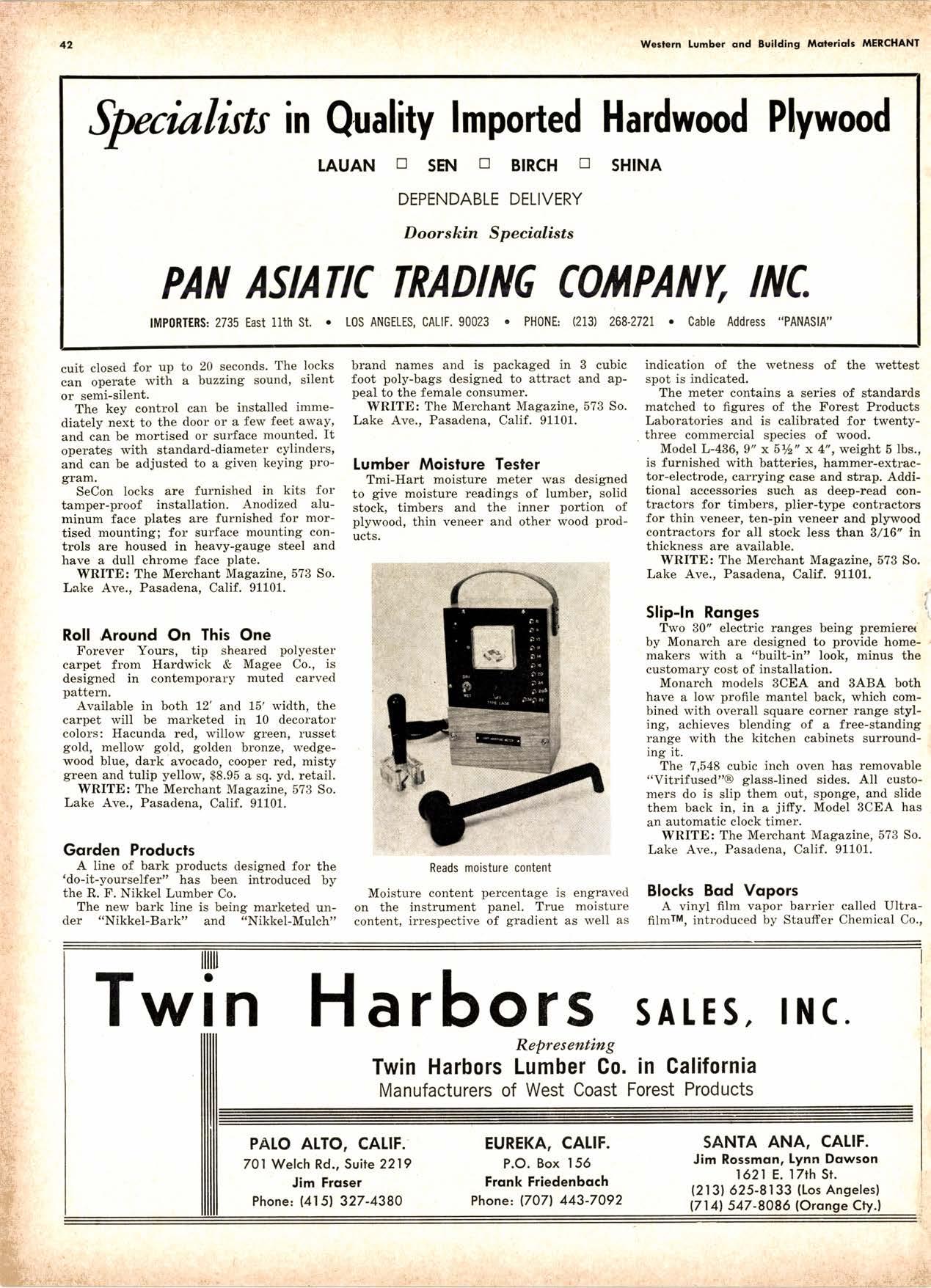
2 minute read
Our industry must fight environmental pollution
A call for "total personal and corpora,te dedication" to practices that will minimize environmental pollution has been endorsed by the Economic Council of the Forest Products Industrv after three davs of meetings on o'Environment and EcLnomics: A Challenge for Industry."
The council, made up of nearly 90 policy-making executives from large and small companies that use wood as a raw material, met February 2-4 in Las Vegas, Nev., and issued a consensus report on its deliberations. Chairman of the 1970 council was William H. Hunt, exec. vp. of Georgia-Pacif ic.
The council is an unofficial bodv that has met annually since 1959, but iis recommmendations have unusual authoritv because of the broad influence of its members in trade associations and other industry groups.
It endorsed President Nixon's State of the Union call for an "age of reform" in environmental matters and emphasized the role of enlightened multiple-use management of all the nation's forest lands.
Strong and prompt action, where it is needed, in the areas of air and water pollution was also urged.
Normally confining itself to recommendations that call for action five to I0 years in the future, the council this year urged immediate implementation of an industry commitment to "meet our responsibilities in the environmental area."
An evaluation of present industry performance in air and water pollution efforts was called for, along with actions by companies to reduce pollution. Local Environmental Improvement Committees should be formed, the Council said, with participation by local and state officials, and companies and associations should participate in the April 22 series of o'teach-ins" on the environment scheduled for hundreds of campuses across the naDevelopment and implementation of a long-term industry program has a high priority with members.
To achieve that goal, the council urged the industry to establish strong, positive and meaningful communications and dialogs with all groups interested in the environment, including the academic community, public officials, recrealion groups ' and the general public.
In addition, a better exchange of informa.tion on methods of pollution abatement was called for, as well as for industrt' action in environmental areas such as improved housing and cooperation in government efforts to improve the economy of rural areas.
It urged companies to give strong priority to allocation of capital for pollution control, "recog'nizing that past performance has not always been adequate by today's standards, and certainly not for the future." In addition, it called for a strong personal commitment by principal corporate officers to action and communication in the environmental area.
Members suggested that the industry jointly consider the possibility of making private land available for additional public recreational u6es and urged corporate owners of forest land to t'continue and expand landscape management for esthetic values as a major element" in ecological programs that have concentrated more on practical aspects in the past.
F or C edar-Rustic palings (also posts and rails) by the carload or LCL, just callHobbsWall!









